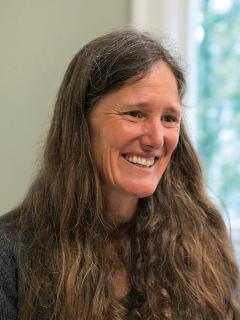Description
This lecture discusses the connection between virtuous actions and health, with a special focus on fertility, pregnancy, and pediatrics. As the seventh century “King of Medicinals” Sun Simiao said, “If people’s virtue in actions is not abundant, even if they constantly take elixirs of jade and pills of gold, they will be unable to extend their longevity,” and “A person who is skilled at preserving life will not encounter ferocious tigers. This is heaven’s reward for having virtue.”
Sabine will first introduce you to the meaning and significance of virtue (or perhaps more accurately “alignment with the Dao”) for physical, spiritual, and even social and cosmic health in classical medical literature, an aspect of yangsheng that tends to be overlooked in contemporary accounts. Then we will explore a system of Virtue Healing that was devised by an illiterate peasant from Manchuria at the turn of the Nineteenth Century. Wang Fengyi became an influential healer, founder of women’s schools, and teacher on virtue, creating a simple yet amazingly powerful and still thriving system of healing by combining the basic principles of Daoism, Confucianism, and Buddhism with traditional Chinese medicine.
Learning Objectives
- Understand the meaning and importance of such traditional Chinese concepts as xiào 孝 (“loving devotion and service to elders” or “filial piety”), alignment with the cosmic Dao, harmonizing Heaven and Earth, and Karma and compassion, as expressed in traditional Chinese medical literature.
- Discuss the significance of these concepts for reproductive and family health, as taught and promoted by Wang Fengyi.
- Explore the role of virtue healing both in contemporary medical practice and in personal cultivation.
- Gain a critical awareness of both the potential and the limitations of these concepts in the modern context.

Sabine has been studying classical Chinese writings on medicine ever since her PhD education in Asian Studies and medical Anthropology. With a strong academic background in early Chinese philosophy, science, cosmology, and language and therefore in a historically and culturally sensitive approach to classical Chinese medicine, she now enjoys studying and teaching Chinese medicine as a living, effective, ever-changing, and much needed response to the issues of our modern times. Some of her favorite topics are gynecology and reproduction, pediatrics, medical ethics, and “nurturing life,” as envisioned by the great medieval “King of Medicinals” Sun Simiao. Sabine is happiest when engaging in a dialogue with practitioners and students of Chinese medicine on how to bring this ancient wisdom to life in our modern times. Besides teaching at the School of Classical Chinese Medicine at the National College of Natural Medicine in Portland, Oregon, and producing books on Chinese medicine through her publishing company, Happy Goat Productions, she is busy raising a daughter and varying numbers of dogs, chickens, goats, fruits, and vegetables.
